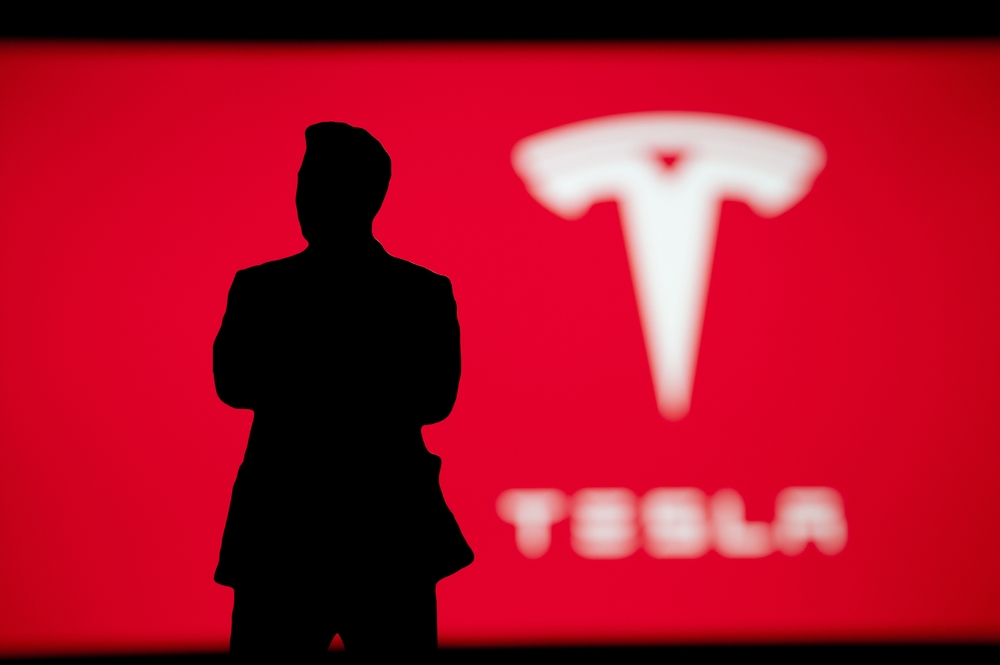By
Flat Earther Travels To Antartica To Prove His Theory Only To Discover Earth Is Actually Round
https://ift.tt/HuGilst
Tesla, a trailblazer in the electric vehicle market, has once again found itself at the center of a significant development. With nearly 700,000 vehicles now subject to a recall, the spotlight shines on an issue that could impact driver safety. As the company races to resolve this problem with its signature over-the-air software updates, questions arise about what this means for Tesla’s reputation and its commitment to innovation. What’s the full story behind this recall, and how does it fit into Tesla’s larger narrative of progress and challenges?
The Issue at Hand
Tesla is recalling approximately 694,304 vehicles due to a malfunction in the tire pressure monitoring system (TPMS). The affected models include the 2017–2025 Model 3, 2020–2025 Model Y, and the 2024 Cybertruck.
The National Highway Traffic Safety Administration (NHTSA) has identified that the TPMS warning light in these vehicles may not remain illuminated between drive cycles. This failure can prevent drivers from being alerted to low tire pressure, increasing the risk of a crash.
Underinflated tires pose significant safety hazards, including reduced braking efficiency, compromised handling, and an increased likelihood of blowouts. A study by the NHTSA found that vehicles with tires underinflated by 25% or more are three times more likely to be involved in a tire-related crash.
To address this issue, Tesla is providing a free over-the-air software update to affected vehicles. Owners will receive notification letters by February 15, 2025, with instructions on the update process.
This recall adds to a series of recalls Tesla has faced throughout the year, including seven separate recalls for its Cybertruck model.
Affected Models and Numbers
Tesla’s recent recall affects approximately 694,304 vehicles, encompassing specific models across multiple production years. The National Highway Traffic Safety Administration (NHTSA) has identified that the tire pressure monitoring system (TPMS) warning light in these vehicles may not remain illuminated between drive cycles, potentially failing to alert drivers of low tire pressure and increasing the risk of a crash.
The affected models include:
- 2017–2025 Tesla Model 3: Tesla’s compact sedan, known for its range and performance, has been a significant contributor to the company’s sales volume.
- 2020–2025 Tesla Model Y: This compact crossover SUV combines functionality with electric efficiency, appealing to a broad consumer base.
- 2024 Tesla Cybertruck: Tesla’s futuristic pickup truck, notable for its distinctive design and advanced features, has garnered substantial attention since its unveiling.
Tesla has initiated a free over-the-air software update to rectify the TPMS issue in these vehicles. Owners of the affected models will receive notification letters by February 15, 2025, detailing the steps to implement the update.
This recall adds to a series of recalls Tesla has faced throughout the year, including seven separate recalls for its Cybertruck model.
Tesla’s Solution
To address the tire pressure monitoring system (TPMS) malfunction affecting approximately 694,304 vehicles, Tesla is deploying a free over-the-air (OTA) software update. This approach allows Tesla to rectify the issue without requiring owners to visit service centers, exemplifying the company’s innovative use of technology to manage vehicle maintenance.
The National Highway Traffic Safety Administration (NHTSA) has indicated that the TPMS warning light in the affected vehicles may not remain illuminated between drive cycles, potentially failing to alert drivers of low tire pressure and increasing the risk of a crash.
Tesla has begun notifying all its stores and service centers about this recall as of December 19, 2024. Vehicle owners are scheduled to receive official notification letters by February 15, 2025, detailing the nature of the issue and instructions for ensuring their vehicle’s software is up to date. Owners can also contact Tesla customer service at 1-877-798-3752 for more information.
This recall is part of a series of recalls Tesla has faced throughout the year, including seven separate recalls for its Cybertruck model.

Broader Recall Trends
In 2024, Tesla has faced a series of recalls affecting various models, highlighting challenges in quality control and safety compliance. Notably, the Cybertruck has been subject to multiple recalls, including issues with the accelerator pedal and drive inverter. In April, Tesla recalled nearly 4,000 Cybertrucks due to a problem with the accelerator pedal, which could dislodge under high force, potentially leading to unintended acceleration. In November, approximately 2,400 Cybertrucks were recalled because of a faulty drive inverter that could cause a loss of drive power, increasing the risk of a crash.
Beyond the Cybertruck, Tesla’s broader lineup has also experienced recalls. In July, the company recalled nearly 1.85 million vehicles, including Model 3, Model S, Model X, and Model Y, due to concerns over a hood latch issue that could result in the hood opening unexpectedly while driving. This defect posed a significant safety hazard, prompting immediate action.
In February, Tesla addressed a recall involving over 2 million vehicles in the U.S. due to instrument panel warning lights that were too small, potentially failing to adequately alert drivers to critical information. This issue underscored the importance of clear and visible safety indicators in vehicle design.

Implications for Tesla
Tesla’s recent recall of nearly 700,000 vehicles due to a tire pressure monitoring system (TPMS) malfunction has significant implications for the company’s reputation and operational practices. This recall, affecting models such as the 2017–2025 Model 3, 2020–2025 Model Y, and the 2024 Cybertruck, adds to a series of recalls in 2024, bringing the total number of vehicles recalled by Tesla to over 5 million
The frequency and scale of these recalls have raised concerns among consumers and industry analysts about Tesla’s quality control and commitment to safety. While Tesla’s innovative over-the-air (OTA) software updates allow for swift issue resolution without requiring physical service visits, the reliance on such fixes may not fully mitigate the negative perception caused by recurrent recalls. As noted by industry observers, “the company’s ‘Buzz score,’ which measures public sentiment based on recent positive or negative discussions, averaged -7.1 among the general American public in 2023, indicating more negative sentiment.”
Financially, the costs associated with these recalls, including software development, deployment, and potential warranty claims, could impact Tesla’s profit margins. In July 2024, Tesla reported its worst quarterly profit margin in over five years, highlighting the ongoing struggle to boost sales amid a slowdown in demand.
Moreover, the recalls may influence consumer trust and brand loyalty. A YouGov poll indicated that while 70% of current Tesla owners would consider purchasing another Tesla, the general public’s consideration remains low, with only 7.7% expressing interest in making Tesla their next car purchase.
The Road to Improvement
Tesla’s tire pressure monitoring system recall serves as a reminder of the challenges that come with balancing innovation and quality assurance in the automotive industry. While Tesla’s swift deployment of over-the-air software updates showcases the company’s technical prowess, the frequency of recalls raises questions about its preemptive safety measures and quality control processes. For a brand known for pushing boundaries, these issues highlight the importance of ensuring reliability alongside innovation.
As Tesla continues to lead the charge in electric vehicle innovation, addressing safety concerns effectively and maintaining consumer trust will be critical to sustaining its reputation in a competitive market. With growing competition in the EV space, the stakes are higher than ever for Tesla to deliver not only cutting-edge technology but also vehicles that meet the highest safety and quality standards.
news
via Government Slaves https://ift.tt/2XcwSEh
December 26, 2024 at 04:06AM
December 26, 2024 at 04:10AM
via The Mind Unleashed https://ift.tt/HuGilst
